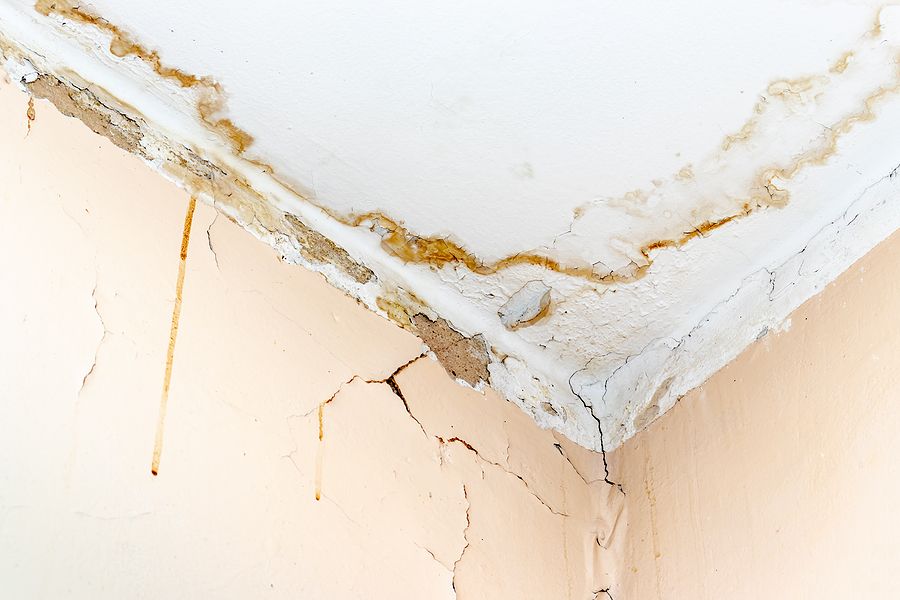Understanding the Top Causes for Water Leaks in Your Home
Understanding the Top Causes for Water Leaks in Your Home
Blog Article
What are your ideas with regards to How Fast Water Damage Can Ruin Your Home?

Leakages not just cause waste of water but can also trigger unneeded damage to your home as well as advertise undesirable organic growth. By understanding and also looking for everyday circumstances that trigger leakages, you can secure your home from future leakages and unnecessary damage.
Instant temperature changes.
Extreme temperature level modifications in our pipes can create them to expand and acquire unexpectedly. This expansion as well as tightening may create cracks in the pipes, specifically if the temperature level are below freezing. It would be best if you kept an eye on exactly how your plumbing functions. The existence of the formerly stated scenarios regularly suggests a high risk.
Rusty water supply
As time passes by, your plumbing system ages and deterioration such as corrosion might begin eating away the pipes. This might be the source of discoloration or warping on your water pipes. This requires an examination with your plumber quickly. If our plumbing system is old, take into consideration changing the pipes considering that they are at a greater threat of corrosion than the newer designs.
Defective Pipeline Joints
The point at which your pipes connect is regularly the weakest web link in the waterline. Pipeline joints can degrade with time, resulting in water leaks. The bulk of pipeline joints are not conveniently noticeable. If you have noisy pipes that make ticking or banging sounds, specifically when the warm water is switched on, your pipe joints are most likely under a lot of pressure. It is advisable to have your plumber inspect your system yearly.
Encroaching origins
A lot of water leaks begin outside your house rather than inside it. If you observe a sudden decrease in water pressure, say in your faucet, require time to head out as well as examine your lawn. You might see wet spots or sinkholes in your yard, and that may imply that tree origins are getting into water lines triggering water to seep out. You can have your plumber check for intrusion, especially if you have trees or bushes near your building.
Poor Water Connectors
At times, a leakage can be caused by loosened hoses and pipelines that supply your devices. In case of a water links leakage, you may see water running directly from the supply line or puddles around your appliances.
Blocked Drains
Clogged drains pipes may be aggravating and inconveniencing, however they can often wind up causing an overflow resulting in burst pipes. Keep removing any kind of products that may go down your drains pipes that could clog them to avoid such hassles.
All the above are reasons for leakages however not all water leaks result from plumbing leaks; some leakages might come from roofing leakages. All leaks must be fixed quickly to stay clear of water damages.
Leaks not just create waste of water however can also trigger unnecessary damage to your residence as well as advertise unwanted natural growth. By looking and recognizing for day-to-day scenarios that cause leakages, you can shield your house from future leakages and also unneeded damage. Today, we will certainly look at 6 leak creates that may be creating your pipelines to drip.
At times, a leakage can be caused by loosened pipes and also pipelines that supply your devices. In instance of a water connections leak, you may notice water running directly from the supply line or pools around your appliances.
How To Check For Water Leak In Your Home
How To Check for Leaks
The average household's leaks can account for nearly 10,000 gallons of water wasted every year and ten percent of homes have leaks that waste 90 gallons or more per day. Common types of leaks found in the home are worn toilet flappers, dripping faucets, and other leaking valves. These types of leaks are often easy to fix, requiring only a few tools and hardware that can pay for themselves in water savings. Fixing easily corrected household water leaks can save homeowners about 10 percent on their water bills.
To check for leaks in your home, you first need to determine whether you're wasting water and then identify the source of the leak. Here are some tips for finding leaks:
Take a look at your water usage during a colder month, such as January or February. If a family of four exceeds 12,000 gallons per month, there are serious leaks.
Check your water meter before and after a two-hour period when no water is being used. If the meter changes at all, you probably have a leak.
Identify toilet leaks by placing a drop of food coloring in the toilet tank. If any color shows up in the bowl after 10 minutes, you have a leak. (Be sure to flush immediately after the experiment to avoid staining the tank.)
Examine faucet gaskets and pipe fittings for any water on the outside of the pipe to check for surface leaks.
Undetected water leaks can happen without the home or business owner even realizing. If you suspect a water leak, but not able to find the source. It is time to contact a professional water leak detection service, The Leak Doctor.
How To Find a Water Leak In Your Home
https://www.leakdoctor.com/blog/How-To-Check-For-Water-Leak-In-Your-Home_AE197.html
/GettyImages-957479686-f3d2e677f2e749fc98aa207b474c5c1f.jpg)
As a serious reader on How to Find Water Leaks, I was thinking sharing that piece of content was really helpful. Enjoyed reading our article? Please share it. Let other people discover it. Thanks for your time. Visit us again soon.
Contact our experts. Report this page